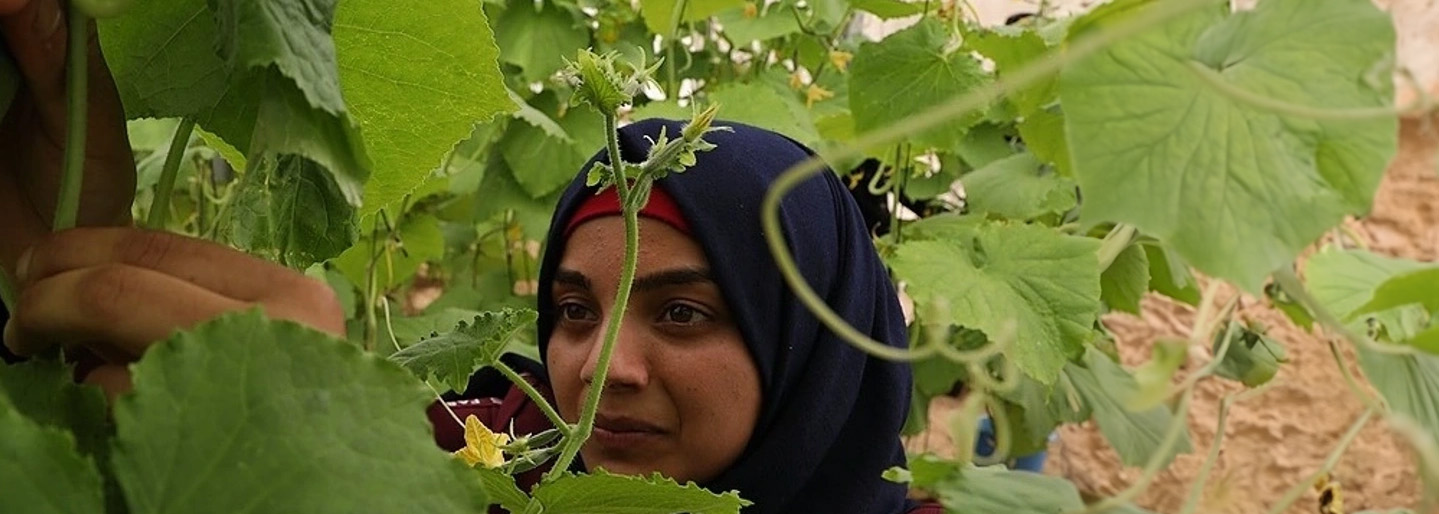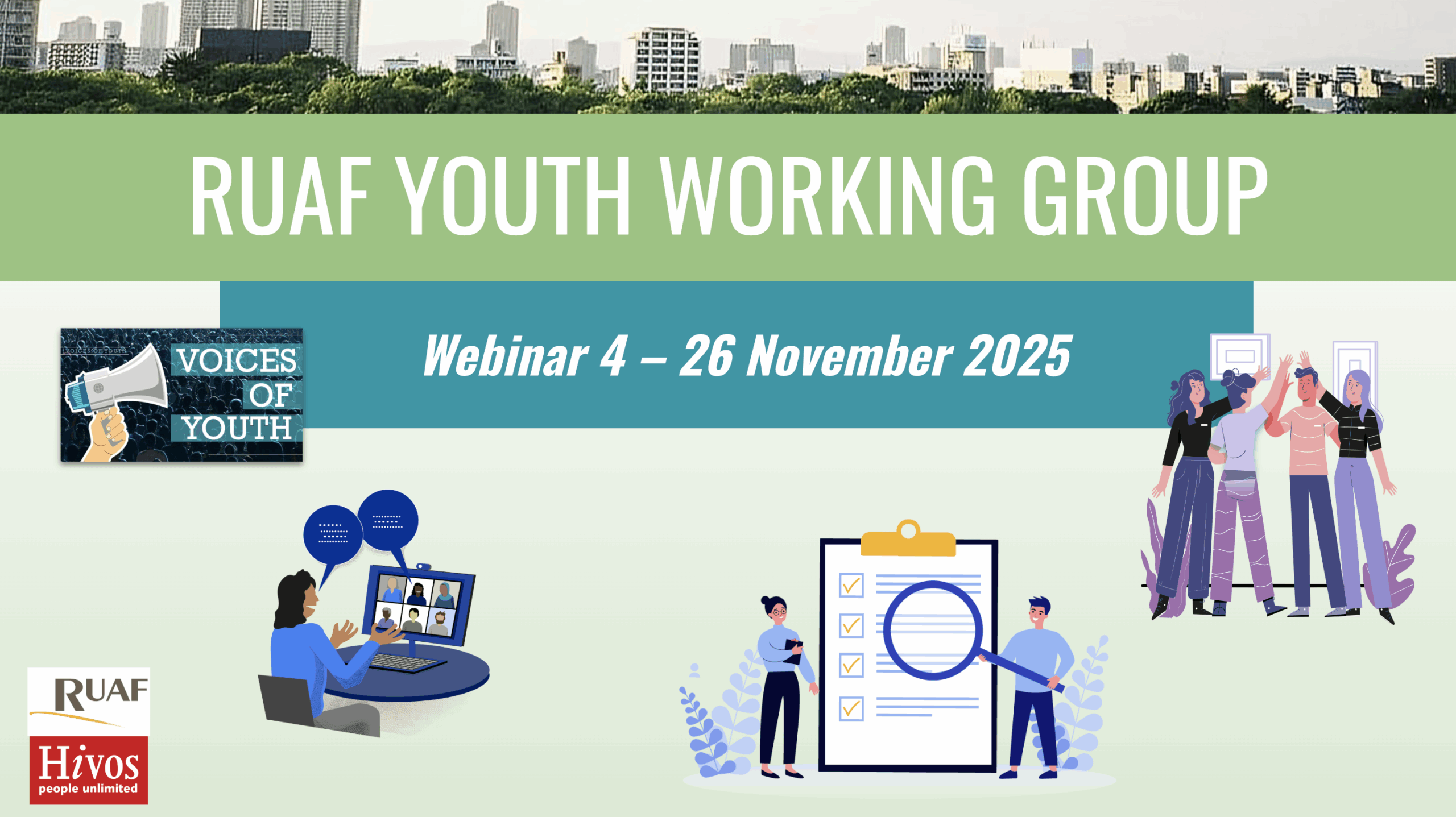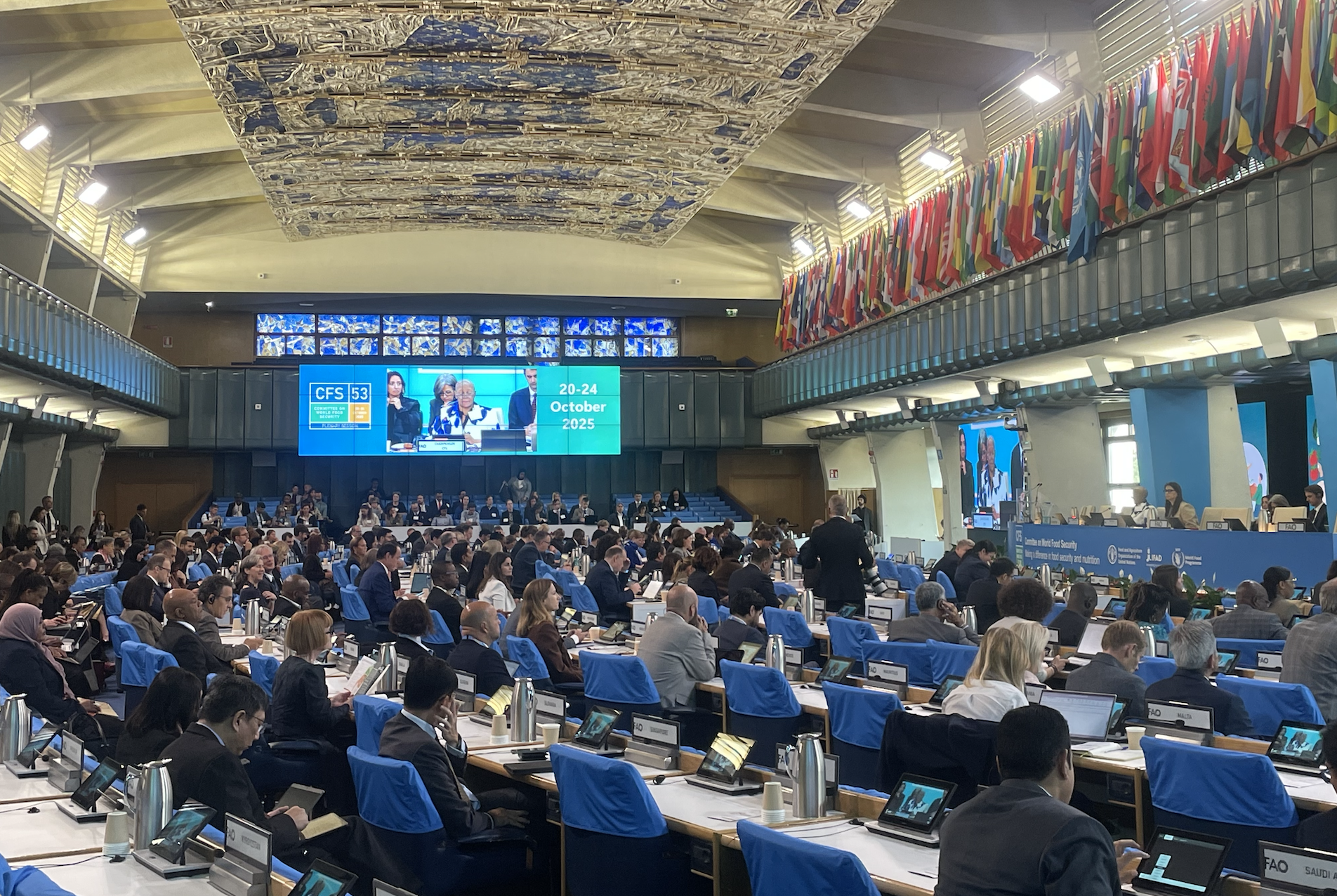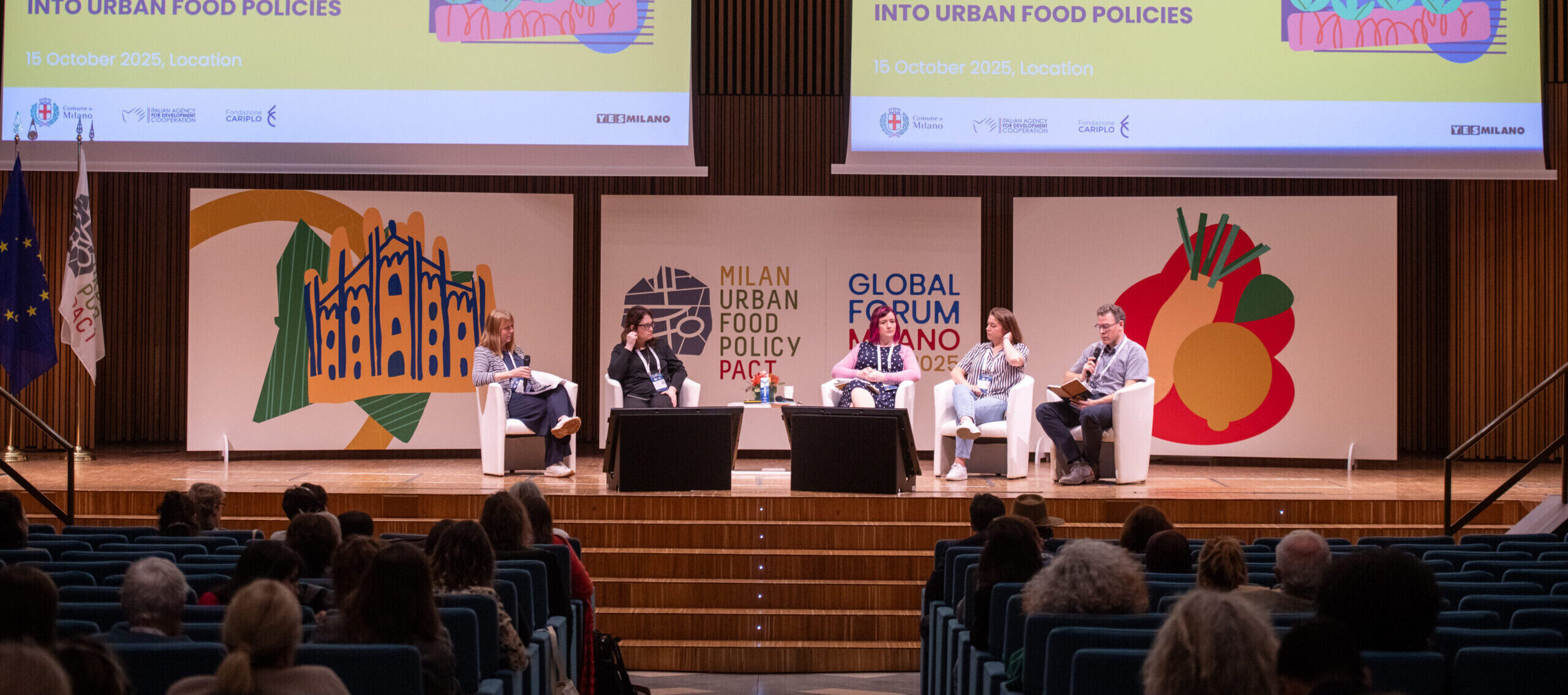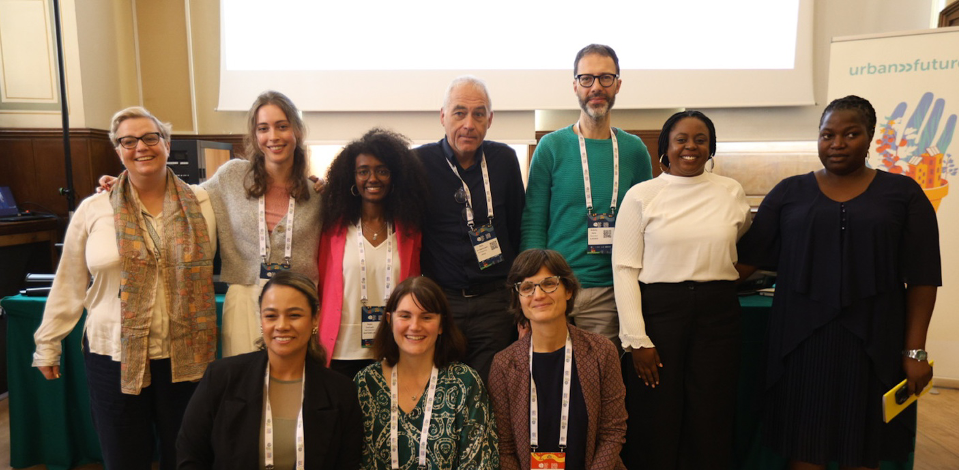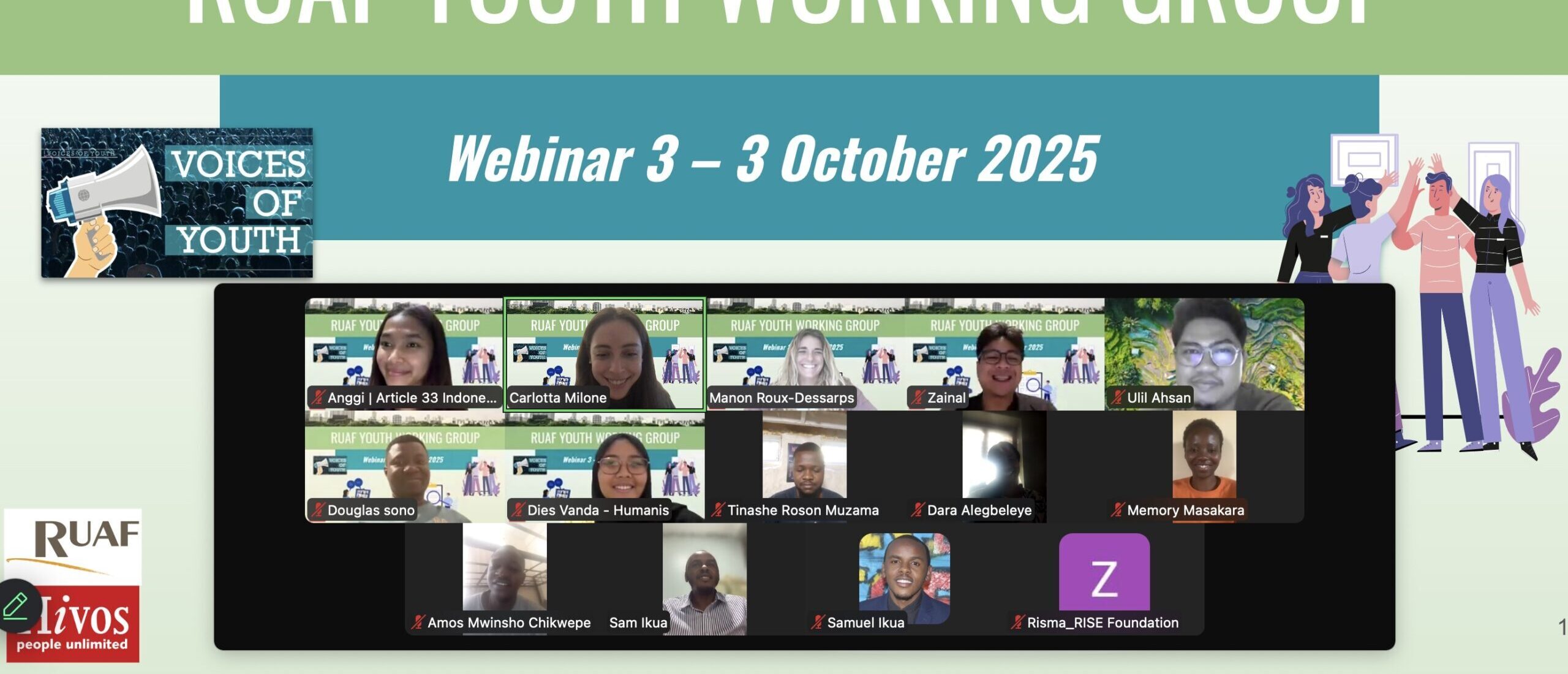This World Food Day, RUAF shines a spotlight on community food resilience. We share the experiences of our colleagues at the Gaza Urban & Periurban Agriculture Platform (GUPAP), whose strong networks, forged over a decade, have been crucial in mitigating the emergency food situation since November 2023. During the eventual rebuilding and recovery of agriculture in Gaza, they set a course towards agroecology and food sovereignty.
The headline news on food security in Gaza talks of famine, constant threat of food-borne illness, and near total reliance on humanitarian aid. Damage to critical infrastructure and resources has been severe. As of September 2024, 2.15 million people – 96% of the population of Gaza – face high levels of acute food insecurity. Over 495,000 (22% of the population), are classed Phase 5 under the Integrated Food Security Phase Classification (IPC) system, characterized by extreme lack of food, starvation, and exhaustion of coping capacities.
Yet amid the misery, GUPAP reports that urban agriculture has remained operational in some areas, albeit on a limited scale. Even in displacement, some growers have mitigated food shortages by growing cucumbers, tomatoes, squash, eggplants, peppers, and sweet peppers.
While the challenges for women, who are both breadwinners and carers, have been magnified beyond measure, some women-led agrifood enterprises have shown remarkable resilience and have adapted to continue providing their communities with fresh produce.
These experiences highlight the importance of establishing strong community networks around food and farming in times of relative stability. In times of crisis – whether due to conflict, climate change, pandemic, or other events – they can swing into action to stave off starvation, provide mutual support, and safeguard resources that will be crucial to recovery and rebuilding.
Gaza’s women farmers
Founded as a participatory platform in 2013, GUPAP estimates that a quarter of Gaza’s population derived livelihoods from family farming prior to November 2023. Two-thirds of these family farmers were women.
The Urban Women’s Agripreneur Forum (UWAF), formed under GUPAP in 2019, represents 10% of women with food enterprises in Gaza. UWAF reports that around 50% of women-led SMEs in agriculture have been partially or totally destroyed since November 2023. Some 30% still exist but have lost their production capacity and require significant reactivation support, such as access to raw materials.
Nonetheless, 20% of UWAF members have managed to continue operating, supplying local markets and communities with fresh produce. Agroecological practices – such as composting, greywater harvesting, and integrated pest management – have helped them remain productive despite supply chain disruption and water shortages.
UWAF’s Community-Led Solidarity Marketing in Crisis (CLSM) initiative, established in 2022 to market essential foods produced by members to poor families, has pivoted to serve displaced families who do not have access to humanitarian aid – as well as to cooperate with international and local NGOs to extend their reach. As of June 2024, 18 tones of fresh and processed products had been distributed to vulnerable families by 50 UWAF members.
Safeguarding local seeds
One Gaza family is dedicated to preserving Gaza’s agricultural heritage by safeguarding Baladi (indigenous) seed varieties.
The Al-Qarara Baladi Seed Bank was established in Khan Younis by Hanadi Muhanna, an active member of the Urban Agriculture Entrepreneurs Forum, in response to farmers’ experiences with imported seeds, climate change, and the threat of extinction. Before the war the seed bank collaborated with around 200 farming families in Gaza, lending them original seeds of 33 varieties selected for their drought tolerance and disease resistance. The farmers return seeds to the bank after their harvesting.
The original seed bank was destroyed in October 2023, and Hanadi and her family were displaced to Deir Al-Balah. Undeterred, they partnered with a local landowner to cultivate crops to start the seed bank anew, as well as secure their own survival. While storage is a challenge (Hanadi currently relies on barrels and plastic contains), surplus seeds are now provided to 78 families that are still managing to grow.
Recovery rooted in food sovereignty
GUPAP is already thinking ahead to the reconstruction of Gaza and post-war food systems recovery. It warns that the strip will face significant donor pressure to intensify production using externally-produced industrial inputs, which will increase pressure on the agroecosystem through soil degradation and water pollution – thereby reducing long-term resilience.
Intensification may also lead to land concentration and fragmentation, reducing access to land for small scale farmers, fishers, and marginalized groups.
Rather, GUPAP advocates a just transition rooted in sovereignty in which decision-makers enter into discussion with farmers – many of whom adhere to Baladi food and farming systems that are understored by land stewardship and the right to food for all – and build the capacity Gaza’s remarkable women agripreneurs.
Access recent GUPAP resources
RUAF is hosting some recent reports, articles and testimonies produced by GUPAP, pending the development of a resource information centre on its own website. This helps ensure that the experiences of GUPAP members are accessible to organisations that support agroecological food systems and urban agriculture, to inform efforts to rebuild Gaza’s food system with principles of food sovereignty paramount and to build food systems resilience everywhere.
To access GUPAP’s resources, please visit our Resources section.

